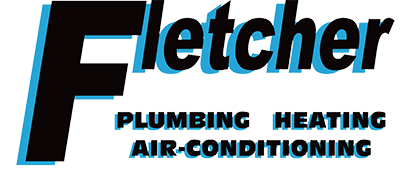
If you’re unsure whether your Smyrna house has unhealthy indoor air quality (IAQ), it likely does.
We are indoors a lot. As a matter of fact, we’re in a building up to 90% of the time, according to the U.S. Environmental Protection Agency. And the air inside residences could be 2–5 times more contaminated than outdoors, which could create long-term health issues.
Most Common Sources of Bad IAQ
We’ve put together a list of the most common sources of bad IAQ, the problems they cause and how you can take care of these indoor air pollutants. If you’re troubled by the air inside your residence, we suggest chatting with a expert like Fletcher Plumbing, Heating & AC about which solutions are a good fit for your home.
Volatile Organic Compounds
Volatile organic compounds, or VOCs, are vapors released by regular household items.
They’re found in paint and stains as well as:
- Furniture
- Carpet
- Building materials
- Cleaning products
- Cosmetics
- Air fresheners
- Candles
When these vapors accumulate indoors, they can irritate your eyes, nose and throat. They might also lead to headaches and nausea. Regardless of whether your house is in a rural or industrial area, an EPA study found indoor levels of these pollutants can be 2–5 times greater than the air outside your home.
Always follow the manufacturer’s guidelines when painting or cleaning. Unlatching a window can help odors dissipate faster.
Air purification systems can also better your air. This equipment partners with your heating and cooling equipment to freshen indoor air. When looking for a system, ensure it’s specifically created to wipe out VOCs.
Dust and Pet Dander
Dust and pet dander can aggravate health problems like asthma and allergies, especially when it constantly gets recirculated by your house’s comfort equipment. While you can vacuum more routinely and install an improved air filter, an air filtration system may be a better match.
This equipment hooks to your heating and cooling equipment to give strong filtration. Some kinds have hospital-level filtration for eliminating particles and bioaerosols.
Persistent Odors
Modern homes are securely sealed to increase energy efficiency. While this is great for your heating and cooling bill, it’s not very good for your IAQ.
Stuffy odors can stay around for a greater amount of time as your house is pulling in a smaller amount of fresh air. Because keeping your windows open all year-round isn’t a possibility, here are two ways you can make your indoor air smell better.
An air purification system is installed in your HVAC system to wipe out odors before they are redistributed. Search for one with a carbon filter and the ability to eliminate damaging VOCs. This equipment can also help keep your household healthy by getting rid of most bacteria and ordinary allergy triggers like pollen and mold spores.
A ventilation system removes musty indoor air and substitutes it with crisp outdoor air. There are two models of units (heat recovery and energy recovery), so ask our professionals for more info on which solution is ideal for your home.
Unsteady Humidity
It’s essential your residence’s humidity stays even. Air that has too much moisture can cause mold, while dry air can cause respiratory symptoms.
Our technicians suggest 40–50% for the best comfort. To keep yours even, think over getting a whole-home humidifier or whole-home dehumidifier with your comfort unit.
Instead of having to pull a humidifier from room to room, this solution delivers consistent humidity throughout your house.
Carbon Monoxide
Carbon monoxide is colorless gas you can’t smell. It’s a byproduct of insufficient combustion in fuel-burning units, like gas heating systems, water heaters or fireplaces.
It produces a severe health risk. In low levels, it can create flu-like symptoms like headaches and nausea. It can be fatal in large levels.
We recommend yearly furnace maintenance to double-check your unit is operating like it should. This work allows our techs to spot issues before they start, including malfunctions that can create carbon monoxide leaks.
The best way to keep your residence free of carbon monoxide is to install detectors. These alarms need to be on every floor by bedrooms and living rooms.
Better Your Home’s Air Quality with the Fletcher Plumbing, Heating & AC Experts
Aware that your house has bad air quality but not sure how to improve it? Or unsure which option is right for you? Give our approachable HVAC experts a call at 302-653-0503 or contact us online now. With free estimates and pro support, we’ll help you find the ideal solution for your home and budget.
